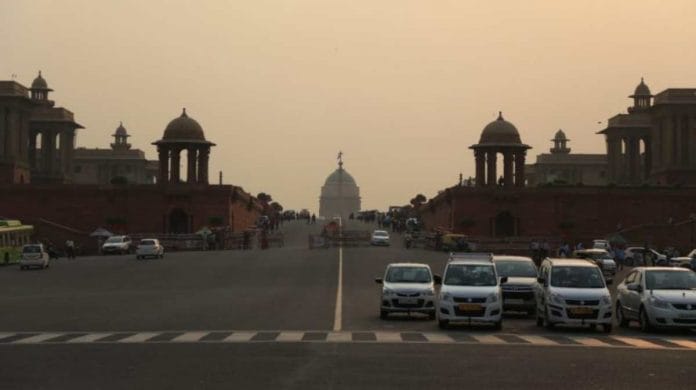New Delhi: The proposed amendments to the cadre rules of the three All India Services hit at the “very core of the constitutional scheme of Indian federalism”, according to the Constitutional Conduct Group (CCG), an independent platform of retired civil service officers.
In a statement Thursday, the CCG said the Modi government’s move seeks to give the Centre unilateral powers without “concurrence” from either the officer concerned or the specific state government.
“The proposed amendments to the cadre rules of all the three AIS seek to give unilateral powers to the Union to pick and choose any AIS officer(s) working in the states to be withdrawn from their services in the state of their allotment and brought to the Centre without the concurrence either of the officer concerned or of the state government that the officer is serving,” said the statement, which has been signed by 109 retired officers.
“While this change in the rules may appear to be a minor, technical one, it, in fact, hits at the very core of the constitutional scheme of Indian federalism,” it added.
“The shifting of the balance disproportionately in favour of the Union in matters of cadre deployment and cadre management will effectively convert the three AIS into three more central services. It is possible that AIS officers may view the interests of the state as secondary and subordinate to the Centre and to the political regime in power there,” the CCG statement said.
“AIS officers working in the state will be reluctant to take any decision or action against the wishes of the political party in power at the Centre for fear of being summarily transferred to the Centre and harassed there. This will undermine the ability of the state governments to implement their policies and stand up against any arbitrary diktats of the Centre,” it added.
The statement comes a fortnight after the Modi government’s proposal to amend the IAS (Cadre) Rules, 1954. According to the proposed changes, an officer whom the Centre wants on deputation would “stand relieved” from his or her respective cadre, even if the state government concerned disagrees or doesn’t give its consent within the specified time.
Also read: Bid to break ‘IAS monopoly’? Forest service officer named MHA additional secretary in rare move
‘Will disrupt administrative work’
This proposal has divided the services — the Indian Administrative Service (IAS), the Indian Police Service (IPS) and the Indian Forest Service (IFoS). While several officers have raised alarm over “centralisation”, another section has called it “need of the hour”.
The first section feels that the amendments would trigger a “Centre-state” conflict, overrule state’s power and dispense with the right of the officers.
Former cabinet secretary K.M. Chandrasekhar said the move will “certainly create a Centre-state issue”.
“AIS (All India Service) officers are allocated to various state cadres. When they go to the Centre, they are considered to be on ‘deputation’ to the Centre. If the Centre starts picking up officers directly from the states without their concurrence, it will seriously disrupt administrative work in the states,” added Chandrasekhar.
“After all, it is in the states that actual development work is carried out and this can be adversely affected if the present system of control is altered,” he said.
According to Chandrasekhar, if the Centre has a shortage of officers, the right approach would be for the “cabinet secretary to hold discussions with chief secretaries and work out an acceptable solution”. “There is no need for the Centre and the states to go to war on this score,” he added.
Gopalan Balagopal, a former IAS officer who retired as special secretary, Cabinet Secretariat, said there is a rationale to formulate the All India Services and then keep a provision of state cadres.
“The proposed amendment seeks to have a sweeping power of the cadres, irrespective of their parent state cadre’s views and their rights would also be dispensed with. I think the central government should introspect why the cadres are not willing to serve under the Centre now,” he said.
Centre left with no option, say others
The other section of officers attributes such reactions as instances of alleged potential political leaning.
“The central government has been running a cadre deficit for a long time. Had there been enough cooperative federalism and a situation of following proper protocol between the Centre and state, this issue would not have even arisen,” said an ex-IAS officer who retired as Department of Personnel and Training (DoPT) secretary.
“There should have been regular rotation of officers between the state and Centre. The states are sanctioned a specific number of cadres, which include a certain number that needs to be sent on central deputation. In the past few years, that has stopped completely, affecting the system and its functioning,” the officer said on condition of anonymity.
“The Centre is facing an acute crunch of officers. I think the stakeholders should take a balanced view. Apprehension should not cloud their judgement, as this is not about politics, it is about functioning a system,” the officer added.
According to a serving IFoS officer, the amendment proposals are “firm in law”.
“There are several instances in which the central government had to rescue an officer when the state came down heavily on him for protesting against some regular corruption. There are instances in which presidential orders were issued to save an officer from major penalties like dismissal from service,” added the officer who didn’t wish to be named. “If there is a misuse of such an amendment, then the onus is on politics, not on the system.”
(Edited by Amit Upadhyaya)
Also read: After bringing J&K, Ladakh under IAS-IPS AGMUT cadre, Modi govt tags them ‘Hard Areas’






